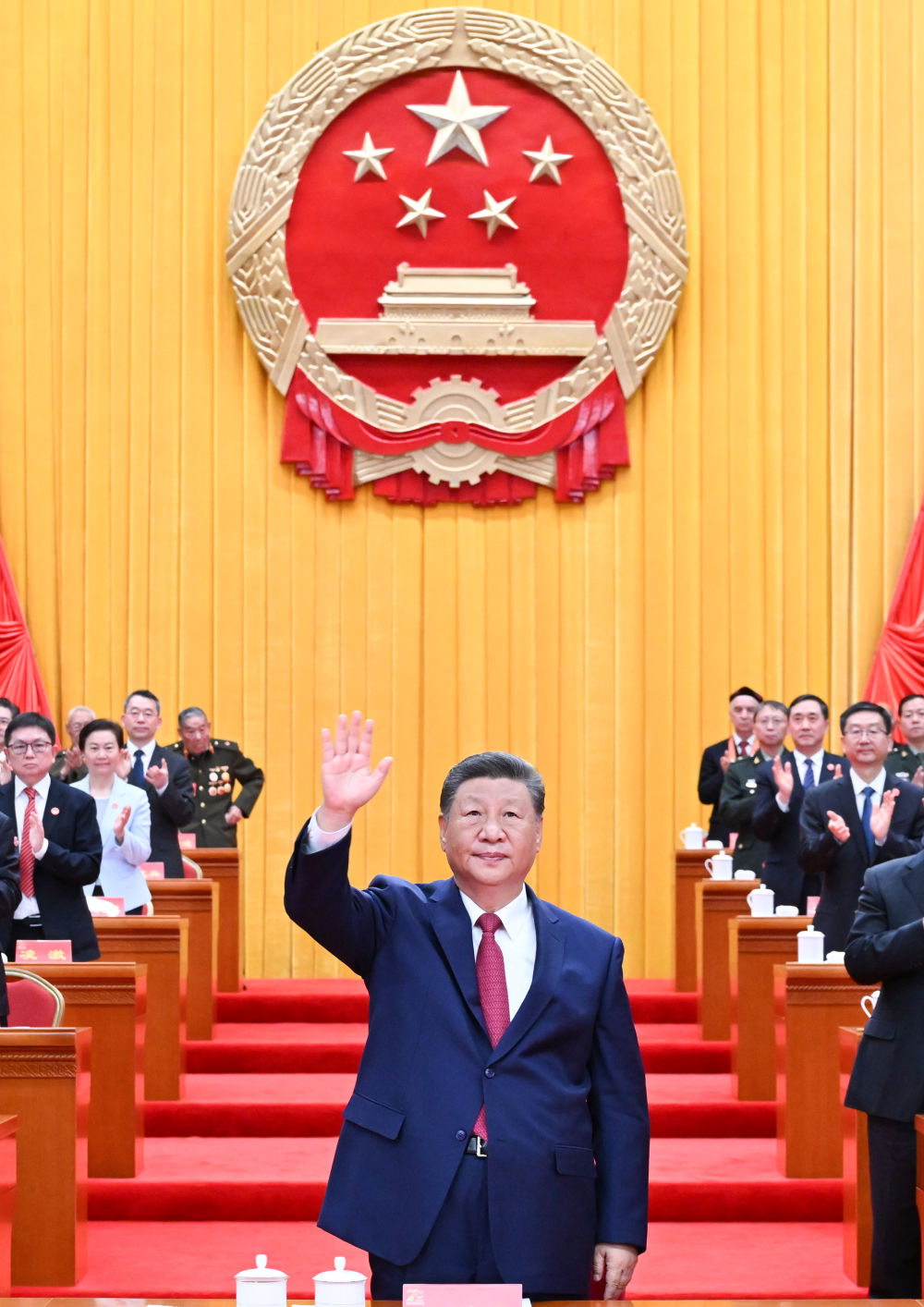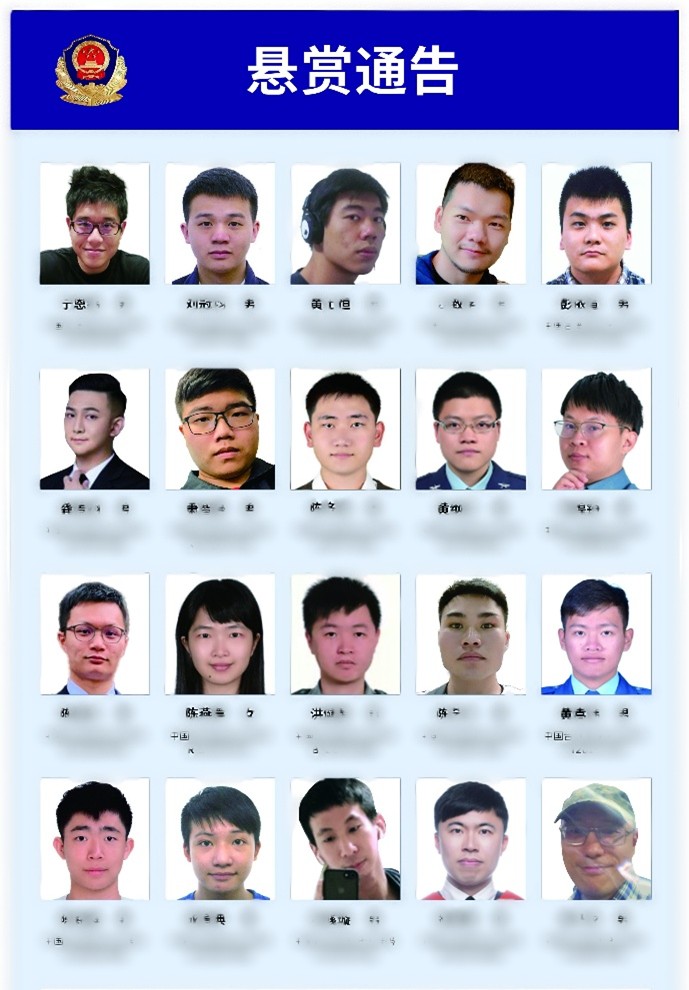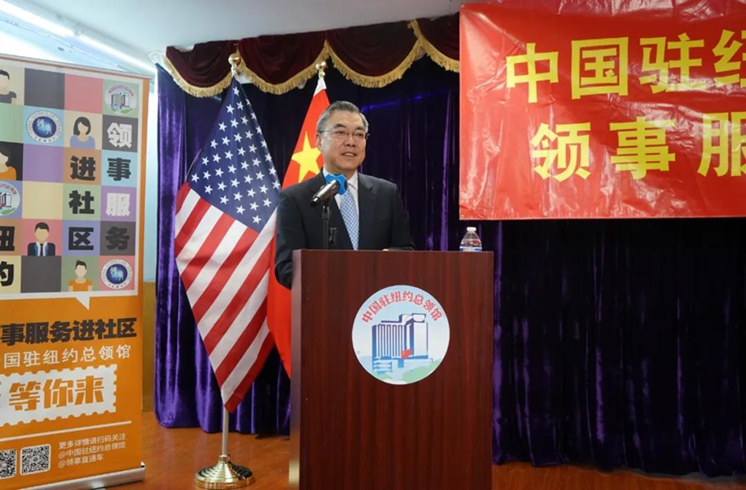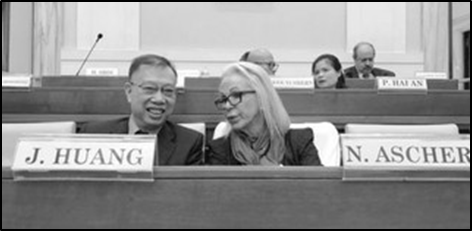
Examining China’s Organ Transplantation System: The Nexus of Security, Medicine, and Predation / Part 3: China’s United Front Tactics in Managing the Narrative on Organ Trafficking
Examining China’s Organ Transplantation System: The Nexus of Security, Medicine, and Predation / Part 3: China’s United Front Tactics in Managing the Narrative on Organ Trafficking
Editor’s Note: This is the third and final installment of an article series analyzing China’s policies and institutional architecture for surgical organ transplantation. The first two installments—“Part 1: “The Growth of China’s Transplantation System Since 2000” and “Part 2: Evidence for the Harvesting of Organs from Prisoners of Conscience”—were published in China Brief in May. In this final installment, analyst Matthew Robertson examines how the Chinese government has sought to exert influence over international medical organizations and officials in order to deflect attention from, and control discourse about, the organ harvesting issue.
Introduction
As COVID-19 emerged this year as a global pandemic leading to large-scale economic and social disruption, greater attention has been focused on the World Health Organization (WHO) and alleged Chinese influence over it (Foreign Policy, April 2). Critics are correct to note that the People’s Republic of China (PRC) has managed to gain outsized influence over the WHO, although precisely how this happened has received little attention. This article presents China’s domestic organ trafficking and transplantation industry as a case study in how the Chinese Communist Party (CCP) has achieved “discourse power” (话语权, huayu quan)—a word of art in CCP political influence literature—on a topic that it considers to be both important and extremely sensitive.
In most developed countries, organ donation and transplantation are largely apolitical. In China it is a heavily politicized field, as a result of the long-term symbiotic relationship between the country’s security apparatus, hospital system, and military-medical complex (China Brief, May 1). The CCP has fended off criticism from activists and ethicists about its transplantation system for decades, but in recent years key members of the Chinese medical bureaucracy have taken a much more proactive approach to exerting influence and “telling the China story well” (讲好中国故事, jianghao Zhongguo gushi) in global medical organizations. With the exception of a growing contingent of dissenters (this author among them), these efforts have been largely successful.
Scholars of Chinese politics have shown how united front ideas permeate CCP approaches to external relations (China Brief, May 9, 2019). [1] The CCP’s engagement with international medical organizations regarding its own state-sponsored organ trafficking industry is an example of their expertise in this set of practices. It showcases many key aspects of political influence work spanning united front activities, propaganda, elite capture, foreigner management, and information falsification and manipulation. If liberal states hope to counter these efforts, they must first become more familiar with how they are implemented.
PRC Influence Over Organ Trafficking Narratives
PRC state goals surrounding organ harvesting narratives are threefold. The party’s first goal is to protect the political security and legitimacy of the regime from the accusation that it systematically exploits prisoners of conscience as an organ source. The party’s second goal is to ensure the continued availability of transplant organs for members of the party elite. The party’s third goal is to bolster China’s image on the global stage as a leader in a field of advanced medicine, while maintaining the prestige and access of Chinese surgeons to Western medical journals, conferences, and professional societies. In all of these areas, the CCP’s success in achieving “discourse power” has been impressive.
As documented in the previous two parts of this series, the CCP oversees the largest state-run organ trafficking industry in the world—almost certainly deriving a large number of organs from prisoners of conscience who are held in captivity, blood-tested, and extralegally executed on demand for paying customers. Despite this, none of the global medical organizations nominally concerned with organ trafficking—including the WHO, The Transplantation Society (TTS), and the Declaration of Istanbul Custodian Group—have publicly acknowledged or criticized this arrangement. Instead, PRC officials helped to establish the WHO’s own anti-organ trafficking task force, and a key Chinese official has served on the ethics committee of TTS, while another has given the keynote speech at its biennial meeting (TTS, May 14; TTS, August 17-23, 2016).
WHO and TTS officials have dismissed concerns about extrajudicial executions while emphasizing the primacy of China’s official narrative: that death row prisoners used to be the primary source of organs, but since 2015 that has changed and only voluntary, hospital-based donors are used. They have dismissed out of hand a pattern of evidence, published in a leading medical ethics journal and reviewed by a prominent statistician, that China’s current voluntary transplant datasets have been systematically falsified (Global Times, December 8, 2019). [2]
The Construction of “Common Ground” with International Transplant Officials
In the post-Mao era, a guiding framework the CCP has used to manage potentially adversarial relationships with outsiders has been that of “seeking common ground and setting differences aside” (求同存异, qiutong cunyi). [3] In the context of global governance for organ transplantation, the “common ground” narrative that PRC officials emphasize is consistent: organs can only be procured via “voluntary donation… by citizens and fair and transparent allocation to the transplant recipients” (Chinese Medical Journal, April 5). All available evidence indicates that PRC officials have not adhered to this ideal, and there are numerous systemic incentives that militate against its realization.
For the last five years, two central themes—the elimination of transplant abuses, and securing sourcing solely from voluntary donors—have been the consistent messages of the most senior PRC transplant officials who interact with foreigners. Two officials in particular have been at the forefront of these propaganda efforts. The first key figure is Dr. Huang Jiefu (黄洁夫), who has held multiple posts: as a former PRC Vice Minister of Health; head of the transplant policy portfolio; Vice Chair of the Healthcare Committee of the CCP (which manages the health of the leadership); a former alternate member of the CCP Central Committee; and former member of the standing committee of the Chinese People’s Political Consultative Conference, the party’s foremost united front organ. The second figure is Dr. Wang Haibo (王海波), Dr. Huang’s protege and director of the voluntary organ donation system.
Over the last 15 years, both officials have built a significant rapport with global transplant experts. Drs. Huang and Wang follow consistent talking points, telling foreign counterparts that they aspire to have a completely voluntary organ donation system, but they simply need help battling corrupt forces inside China to achieve it. Per this narrative, public discussion of organ harvesting from political prisoners would undermine their reform efforts; foreign experts must place trust in them as progressive members of the PRC medical community, and offer their support. [4]
In their engagement with foreign interlocutors, PRC officials are willing to countenance superficial critiques that exclude discussion of the most significant abuses within the PRC transplant system. For example, global transplant leaders have written letters addressed to Xi Jinping stating that China is “scorned by the international community” for using organs from death row prisoners, and that Xi Jinping’s fight against corruption in China must target this abuse (Transplantation (Journal), April 27, 2014). Foreign surgeons have also sought to bolster their ethical credentials by highlighting their opposition to the use of death row prisoners(Committee on Foreign Affairs (U.S.), June 23, 2016). Such communications are cited approvingly by veteran transplant insiders like Dr. Ye Qifa (叶啟发), who notes that, with this sort of support from the international community, China will indeed be able to continue the battle against corruption. Dr. Ye noted that the authors addressed their letter to Xi soon after the Third Plenum of the 18th Central Committee, when Xi had specifically emphasized developing the rule of law (CCTV, January 10, 2016).
Foreign medical organizations have thus put themselves in the position of attempting to navigate the vagaries and sloganeering of Chinese politics, much like insiders, in an attempt to bring about their desired policy outcomes. In such exchanges Chinese transplant officials and foreign experts find themselves on a comfortable “common ground.” However, such discussions leave unaddressed the killing of prisoners of conscience for their organs. Criticism of death row abuses is allowed; promises that they have ended are made; but claims of organ harvesting from prisoners of conscience are seen as “anti-China” and are ignored or dismissed (China Daily, August 7, 2017).
“Win-Win” Partnerships with Foreign Medical Officials
As often occurs in CCP political influence campaigns, both parties stand to gain from the interactions, and targeted elites often consent to their co-optation. Ways in which international transplant professionals benefit from their credulity regarding CCP claims of limited abuses and vigorous reforms include the following:
- Being taken on tours across China, at the host’s expense, to visit medical facilities; such events provide opportunities for the CCP to use its extensive experience in exerting influence via hospitality. [5]
- Feeling that they are part of a great enterprise of helping China to reform, while helping vulnerable and valiant reformist officials at the vanguard of that reform. [6]
- The intangible benefits that come from not disrupting the status quo by claiming that crimes against humanity have been committed (which would be tantamount to a demand that Dr. Huang himself be prosecuted).
- Maintaining business relationships: the annual TTS conference is sponsored by pharmaceutical companies who sell immunosuppressant drugs in China (and Roche helped build one of the PLA’s organ registries). [7]
Chinese officials have actively cultivated foreign medical officials: for example, they have singled out for praise Dr. Francis Delmonico, a Harvard surgeon who has served as a former president of TTS, and head of the WHO anti-trafficking task force. Dr. Delmonico has appeared in PRC state media to praise reforms in the organ transplant system (CGTN/Youtube, March 31, 2017), and has been instrumental in holding together a coalition of global transplant leaders supportive of the PRC—including WHO officials, current and former TTS presidents, and figures in the Vatican. PRC state media has publicly denounced Dr. Jacob Lavee, a leading cardiac transplant surgeon and former TTS Ethics Committee member, for publishing (with the author) a scientific paper about falsification of Chinese transplant data. None of his colleagues have come to his defense (Global Times, December 8, 2019).
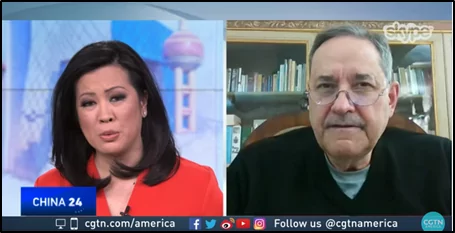
Other global transplant leaders who have expressed support for China’s reforms—and declined to discuss the most serious alleged abuses—include Dr. John Fung of the University of Chicago (formerly of the Cleveland Clinic, where numerous Chinese transplant surgeons trained, and formerly treasurer of TTS) and Dr. Ronald Busuttil, one of the most prominent liver surgeons in the United States. Both of those doctors have shared what could be characterized as friendly ties with Chinese surgeons or have been involved in transplant-related businesses that operated in China. For instance, Dr. Fung served as an advisor to clinical trials of an extracorporeal liver device in China, necessitating the use of transplant organs during a period when China did not claim to have a national voluntary transplantation system. Dr. Michael Millis, another American surgeon who has played a key role in promoting China’s reforms, served on the clinical advisory board and held stock options in the company. [8] Dr. Busuttil has been hosted on multiple occasions by Dr. Zheng Shusen (郑树森)—a prolific liver transplant surgeon who until 2017 played a leading role in the CCP’s campaign against Falun Gong in Zhejiang province—and may have been involved in a memorandum of understanding between Dr. Zheng’s hospital and UCLA Medical Center. [9]
The environment created by these “friendships” filters through to the way that influential media outlets both report the official story and ignore the unofficial story. [10] This trend has been evident in approving views from global medical organizations, and anecdotal media reports that endorsed the reforms as real (Financial Times, March 28, 2017; PBS, May 29, 2017; Washington Post, September 15, 2017). If it were not for a coalition of dissenting ethicists, scholars, and doctors, the CCP may well have succeeded in portraying its simulation of a voluntary transplantation system as the real thing. [11]
The foreign experts cited here are almost certainly well-intentioned, choosing to believe that they are engaged in a constructive project with their professional peers in the PRC. They do not appear to have reflected on the possibility that they may be the targets of subterfuge and cooptation by trained party cadres who are committed to defending the political security of the regime, and to ensuring that they are themselves not held accountable for the abuses in which they have engaged.
Conclusion
PRC influence over international transplantation highlights the difficultly of liberal institutions dealing with the challenge posed by united front political techniques. The techniques themselves may be commonplace —spin-doctoring, psychological pressure, misleading appeals, and outright lies are familiar to many in democracies—but the international regulation of organ transplantation is conducted by non-state actors who operate on premises foreign to the CCP. They assume that all parties want the same outcome, and are similarly motivated to achieve it. The CCP has found great success in appearing to superficially adapt to shared values—of human autonomy and dignity, vouchsafed by information transparency and legal safeguards—but actual observation of its behavior reveals significant discrepancies between the claims and the reality. International organizations have thus found themselves negotiated into a corner by a sophisticated political organization with vast experience in perception manipulation and a great deal at stake. The party is here the beneficiary of a basic role mismatch.
The price foreigners pay to make progress in helping China build an ethical transplant system—the putative “common ground”—is to not discuss the alleged crimes against humanity in which the PRC transplant system, and senior medical officials, are involved. [12] The consequences of this for the global medical establishment have not merely been willful ignorance of alleged crimes against humanity, but along with it the abandonment (at least in the case of the PRC) of the genuine demand that transplantation systems meet the basic requirements of transparency and traceability in organ donation. If liberal states care to correct this state of affairs, they may need to more assertively concern themselves with the substance of the evidence, and be more proactive in shaping how international experts—and likely which experts—interface with the PRC on this topic.
The author wishes to thank Jacob Lavee, Wendy Rogers, Arne Schwarz, Tobias Smith, and Flora Yan.
Matthew P. Robertson is a research fellow in the China Program at the Victims of Communism Memorial Foundation and a doctoral student in political science at the Australian National University. His dissertation research examines the political logic of state control over and exploitation of the bodies of Chinese citizens, with a focus on the case of the organ transplantation industry.
Notes
[1] See: Anne-Marie Brady, Making the Foreign Serve China: Managing Foreigners in the People’s Republic, 2003; Matt Schrader, “Friends and Enemies: A Framework for Understanding Chinese Political Interference in Democratic Countries,” Alliance for Securing Democracy, May 2020, https://securingdemocracy.gmfus.org/wp-content/uploads/2020/05/Friends-and-Enemies-A-Framework-for-Understanding-Chinese-Political-Interference-in-Democratic-Countries.pdf; Alexander Bowe, “China’s Overseas United Front Work: Background and Implications for the United States,” US-China Economic and Security Commission, August 24, 2018; Peter Mattis and Alex Joske, “The Third Magic Weapon: Reforming China’s United Front,” War on the Rocks, June 24, 2019, https://warontherocks.com/2019/06/the-third-magic-weapon-reforming-chinas-united-front/; Peter Mattis, “China’s Digital Authoritarianism: Surveillance, Influence, and Political Control,” Hearing Before the House Permanent Select Committee on Intelligence , U.S. Congress, May 16, 2019, https://docs.house.gov/meetings/IG/IG00/20190516/109462/HHRG-116-IG00-Wstate-MattisP-20190516.pdf.
[2] See: Matthew P. Robertson, Raymond L. Hinde, and Jacob Lavee, “Analysis of Official Deceased Organ Donation Data Casts Doubt on the Credibility of China’s Organ Transplant Reform,” BMC Medical Ethics 20, no. 1, November 14, 2019, pp. 79; and David Spiegelhalter, “Commentary on ‘Analysis of Official Deceased Organ Donation Data Casts Doubt on Credibility of China’s Organ Transplant Reform’ by Matthew P. Robertson, Raymond L. Hinde and Jacob Lavee,” in Submission to The China Tribunal, 2019, https://chinatribunal.com/wp-content/uploads/2019/06/Commentary-on-Robertson-et-al-Spiegelhalter.pdf.
[3] Anne-Marie Brady, Making the Foreign Serve China: Managing Foreigners in the People’s Republic (2003), pp. 218–220.
[4] Evidence of the internalization of this narrative may be found in the following sources: Jeremy Chapman and Philip O’Connell, “Senate Inquiry into Human Organ Trafficking and Organ Transplant Tourism, Submission 28,” Undated, https://www.aph.gov.au/DocumentStore.ashx?id=0cec294d-6b4c-4981-b7a4-018170c119ac&subId=561506; “Organ Harvesting: An Examination of a Brutal Practice,” Joint Hearing Before the Subcomm. on Africa, Global Health, Global Human Rights, and International Organizations and the Subcomm. on Europe, Eurasia, and Emerging Threats of the House Comm. on Foreign Affairs, June 23, 2016, https://docs.house.gov/meetings/FA/FA16/20160623/105116/HHRG-114-FA16-20160623-SD006.pdf; P. J. O’Connell, N. Ascher, and F. L. Delmonico, “The Transplantation Society Believes a Policy of Engagement Will Facilitate Organ Donation Reform in China,” American Journal of Transplantation: Official Journal of the American Society of Transplantation and the American Society of Transplant Surgeons, November 2016; Francis Delmonico et al., “Open Letter to Xi Jinping, President of the People’s Republic of China: China’s Fight against Corruption in Organ Transplantation,” Transplantation, April 27, 2014, https://pubmed.ncbi.nlm.nih.gov/24667765/.
[5] For an example discussion of foreign experts’ tours of China see Dr. Ye Qifa’s comments in Kuhn, “Closer to China: China’s New Organ Transplant System”; for an indication of how these trips are used to bolster China’s reforms, see (Editorial Office 2013); for a statement that these trips are paid for by a government-connected source, see Dr. Delmonico’s testimony in “Organ Harvesting: An Examination of a Brutal Practice, pp. 50–51, https://docs.house.gov/meetings/FA/FA16/20160623/105116/HHRG-114-FA16-20160623-SD006.pdf.
[6] For the trope in general, see: Richard H. Solomon, Chinese Political Negotiating Behavior (Rand, 1983), pp. 10; and in particular see: “Organ Harvesting: An Examination of a Brutal Practice,” pp. 41, https://docs.house.gov/meetings/FA/FA16/20160623/105116/HHRG-114-FA16-20160623-SD006.pdf.
[7] See: Kirk Allison, “China’s Execution Transplantation System and International Institutions. A Too-Sticky Wicket?,” in An Unprecedented Evil Persecution (unknown, 2016), 132–50; People’s Liberation Army No. 2 Affiliated General Hospital, 中国肾移植科学登记系统 [China Scientific Registry of Kidney Transplants], November 25, 2009, https://web.archive.org/web/20091125112308/https://csrkt.org/.
[8] See: Vital Therapies, Inc., “Vital Therapies, Inc. Form S-1 Registration Statement,” Securities and Exchange Commission, October 11, 2013, https://www.sec.gov/Archives/edgar/data/1280776/000119312513398007/d543159ds1.htm; “PRESS RELEASE: Vital Therapies Closes $28.1 Million Financing,” FierceBiotech, October 3, 2007, https://www.fiercebiotech.com/biotech/press-release-vital-therapies-closes-28-1-million-financing; Zhong-Ping Duan et al., “Interim Results of Randomized Controlled Trial of ELAD (TM) in Acute on Chronic Liver Disease,” in Hepatology, October 2007; “Fact Sheet,” Vital Therapies, September 2010, https://archive.org/includes/donate.php?as_page=1&transpiled=0&referer=https%3A//web.archive.org/web/20140716004330/http%3A//vitaltherapies.com.cn/pdf/VTI_Factsheet_0910_FINAL.pdf.
[9] Jin Zhang, “Chinese Liver Surgery Broadcasts Live to US Surgeons,” China Radio International, August 17, 2011, https://archive.is/9gNEm; “浙医一院与美国UCLA医学中心联合成立肝病中心-浙医一院 [Zhejiang First Hospital and UCLA Medical Center Jointly Established Liver Disease Center – Zhejiang First Hospital],” Zhejiang Health Online, June 2, 2011, https://web.archive.org/web/20200514145820/https://health.zjol.com.cn/05zjhealth/system/2011/06/02/017570978_01.shtml.
[10] For a disturbing account of how The New York Times has ignored the unofficial story, see Didi Kirsten Tatlow, “Submission to the China Tribunal,” February 23, 2019, https://chinatribunal.com/wp-content/uploads/2019/06/DidiKirstenTatlow_Submission.pdf.
[11] My claim that China’s organ transplantation system is effectively a “simulation” is substantiated in: Matthew P. Robertson, Raymond L. Hinde, and Jacob Lavee, “Analysis of Official Deceased Organ Donation Data Casts Doubt on the Credibility of China’s Organ Transplant Reform,” BMC Medical Ethics, November 14, 2019, https://bmcmedethics.biomedcentral.com/articles/10.1186/s12910-019-0406-6.
[12] Wendy A. Rogers, Matthew P. Robertson, and Jacob Lavee, “Engaging with China on Organ Transplantation,” BMJ 356, February 7, 2017, j665.
